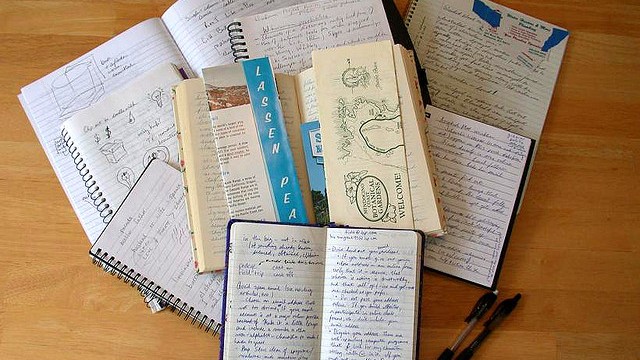Contributed and edited by Lacy Edney, Marketing and Social Media Coordinator, ILSC-San Francisco
I’ve been on the language learning track for a while. It all started with Spanish, which was more of a lackadaisical wandering through vocabulary and tenses that never seemed to sink in. French was a slow trot over some of those hurdles, but somehow I felt like the brakes were always on. I couldn’t quite put my language skills into full throttle. It wasn’t until I started learning Italian, and then Portuguese that I got on the fast track to language learning.
Maybe you have been studying a language for a while, but you feel a bit stuck or you would like to learn faster.
Try These 5 Tips to Accelerate Your Language Learning:
1. Find Your Personal Learning Combo
Each person has their own combination. You could be the type of learner that needs to listen and write at the same time. Maybe you do best when you are just attentively listening and repeating, or maybe you need to be able to see the word in order to remember it. I found that the best method for me was reading out loud while walking and stopping to scribble some notes down as I went. I recommend trying a few different methods to see what works best for you. Learning a language is a skill, and half the battle is finding the best strategy for you!
2. Exposure, Exposure, Exposure
Studying abroad is so important for language learning because it repeatedly exposes you to the language throughout the day. Even though you may not have the opportunity to hop on the next flight to Paris to practice your French, you can mimic the immersion experience right where you live. The more times per day you can expose yourself to the language, the better you will remember it. Learning a language is like creating a new pathway in your mind. Even 5 minutes a day of listening to a podcast or looking through your flash cards while you wait in line makes a significant difference. The more often you can walk down that new pathway, even just for a few moments, the more comfortable and well-worn the path will be.
3. Make Mistakes
It goes without saying that when you are learning something new, you are bound to make mistakes. It’s one of those inescapable facts of life. You will flub up sometimes, and there is a good chance that you will make a hilarious mistake every now and again. The only thing to do is accept it, or better yet, embrace it. Learning a new language is a new form of self-expression, so don’t put too much pressure on yourself! Let yourself be a beginner. If you insist on progressing perfectly, it will be a marathon of tiptoe steps. However, if you want to learn in leaps and bounds, you are going to have to risk looking a little silly. Children learn languages by using the words–by piecing the phrases together, mistakes and all, and making the necessary corrections until they speak beautifully! Learning a language can be far more simple than we make it out to be. At the core, it’s about expressing yourself using sound combinations that are different from the ones you’re used to! The more you can embrace and enjoy being imperfect, the more fun the journey will be.
4. Get Moving!
Something about motion helps with transcribing and cementing the information into our brains. Exercise can increase the size of the hippocampus, which is responsible for memory. In fact, Sandra Bond Chapman, Ph.D., founder and chief director of the Center for BrainHealth stated, “Physical exercise may be one of the most beneficial and cost-effective therapies widely available to everyone to elevate memory performance.” Try exercising before or after studying. I sometimes walk while studying new words, but watch out for oncoming obstacles!
5. Make It Personal
As a language learner and language teacher, I have found that one of the best way to memorize grammar, vocabulary, or idiomatic expressions is to make it personal. If I can create a phrase that relates it to my life, then I am much more likely to remember it. Instead of trying to memorize a grammatical structure or some long list of vocabulary, I try to form real sentences that I want to use and then go out and use them. It helps make learning organic. I think it’s easy to forget that the main reason for language learning is to connect with others. You are seeking to express yourself and your thoughts, ideas,or needs to someone else. Since this is the overall goal, the more practical and personal you can make your learning, the more useful and easy it will be to remember and use!
What have you found to be the most helpful in your language learning process?





